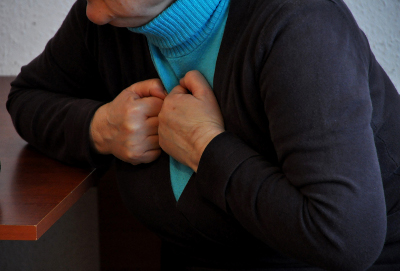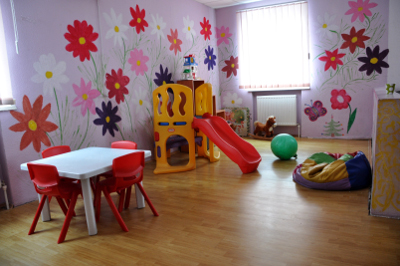New shelter offers refuge to survivors of domestic violence in Georgia
A new shelter in eastern Georgia, supported by UN Women, will provide psycho-social rehabilitation, legal aid and emergency medical services to survivors of domestic violence in Georgia, including those with disabilities.Date:

Access to services, such as shelters, for victims/survivors of domestic violence is crucial to address the problem of domestic violence. Since 2011, three state shelters have been operating in Georgia. A fourth one opened on April 5 in the Kakheti Region, in eastern Georgia.
The new shelter can accommodate 12 clients, including those with special needs (disabilities). It is the first service of this type and size in the Kakheti region. The facility will offer psycho-social rehabilitation, legal aid and emergency medical services and support to re-integrate survivors of domestic violence. The service is run by the State Fund for Protecting and Assisting (Statutory) Victims of Human Trafficking.
Representatives of the Ministry of Internal Affairs, Ministry of Health, the Swedish Embassy and US Embassy, UN Women and women’s NGOs attended the opening ceremony for the shelter. At the ceremony, Archil Talakvadze, Deputy Minister of Internal Affairs said: “Since the fight against domestic violence has become our priority, the police response has improved significantly. The prosecution rate for perpetrators has increased from 40% to 90%, and the number of restraining orders has increased almost tenfold since 2014”.
In addition to Kakheti, there are shelters for victims/survivors of domestic violence in Tbilisi, Gori (Shida Kartli Region) and Kutaisi (Imereti, West Georgia). All four shelters were able to provide services as a result of technical assistance provided by UN Women, with the financial support of the Swedish Government, within the framework of the UN Joint Programme for Gender Equality. Currently, all four shelters are funded from the state budget.

As a result of raising public awareness about the phenomenon of domestic violence and changing attitudes, the number of shelter beneficiaries is increasing. By 2015, there were 155 women and children using shelters throughout the country (compared with 100 in 2013 and 114 in 2014). Beneficiaries aged 24-34 are the primary users of the service (accounting for 75% of all users).
As part of UN Women’s “COMMIT” campaign, the Government of Georgia committed to “maintain and strengthen its efforts to prevent and combat domestic violence by carrying out national awareness–raising campaigns to stop domestic violence, promptly responding to reports on violence coming through specially established hotlines, providing victims with shelter facilities, and ensuring the safety of whistleblowers, among other measures.”
Read more on UN Women’s website for Georgia.